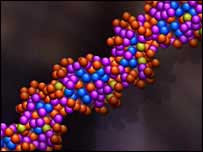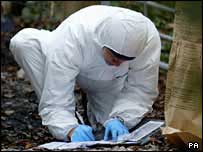Forensic scientists could use DNA retrieved from a crime scene to predict the surname of the suspect, according to a study carried out by the University of Leicester, UK.


The method exploits genetic likenesses between men who share the same surname. It is based on work comparing the Y chromosomes of men with the same surname. The Y chromosome is a package of genetic material found only in males and passed down from father to son, just like a surname.
“The evidence would not be hanging on the Y chromosome, all it would give you is an investigative tool to prioritise a sub-set of your suspects,” said co-author Dr Mark Jobling.
Mining the information would require building a database of at least 40,000 surnames and the Y chromosome profiles associated with them.
The researcher said police could consult the Y chromosome and surname database to help prioritise their search in cases where a crime scene sample had failed to turn up matches in the national DNA database.
However, the technology could have some predictive power in just under half the population, after the most common surnames like Smith, Taylor and Williams have been excluded. Besides, men with the same surname might have very similar Y chromosomes. But adoptions, infidelity, name changes and multiple founders for just one surname complicate the picture.
The researchers claim that their method could help in roughly 10 murders and 60 rapes annually.
Via BBC News.
